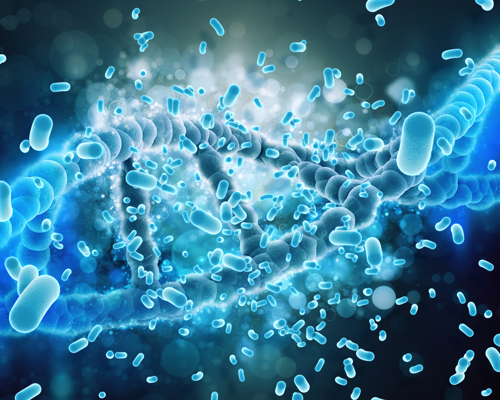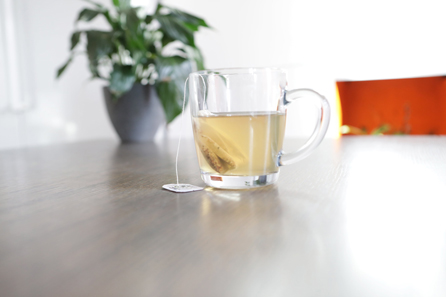
Did you know that there are hundreds of species of bacteria inside of your gut?
Whilst some are friendly and help keep a balance in the gut, others are not so helpful and can cause us some issues.
The bacteria will come in four groups: Firmicutes, Bacteroidetes, Actinobacteria or Proteobacteria, and the good bacteria will work to destroy harmful bacteria and other microorganisms, producing vitamin K, folate and short-chain fatty acids to help your digestion.
What happens when your microbiome is off balance?
Well, this is then known as dysbiosis, which can lead to some nasty conditions such as insulin resistance, weight gain, inflammation, obesity, inflammatory bowel disease and colorectal cancer.
Now, you might have heard the words ‘gut health’ being spun around a lot lately, and whilst you may think it’s a new health trend, it really is one of the most important things to keep intact.
As the gut microbiota is one of the key elements contributing to the regulation of host health (animal / human health), this internal ecosystem needs to be in optimal order so that your body is functioning as it should.
With so many things that could go wrong if your gut is negatively impacted, making sure that you are eating the right things and taking care of your overall health is key to feeling refreshed, more energetic, and ready to take on the day.
Why is the microbiome so important to health and wellness?
The microbiome plays important roles in the maintenance and development of the human body, and these organisms are responsible for launching the immune system, affecting inflammatory homeostasis and immune regulation in babies and young children.
So, think of your microbiome and gut health like the protective layer of your immune system makeup. If it breaks, then you are going to be susceptible to a range of illnesses.
For example, gut microbiota issues are linked to many diseases, such as obesity, type 2 diabetes, hepatic steatosis, intestinal bowel diseases and several types of cancer.
There is also research suggesting that there are links between the gut microbiome and health, obesity, inflammatory bowel disease, arthritis, autism and even your likelihood of catching COVID-19.
What are the factors that impact the microbiome?
Diet and lifestyle are major influencers of the microbiome’s composition and vitality, as recent studies have shown just how much the microbiome impacts health and disease.
Regarding the food that you eat, overprocessed foods and high sugar content are two factors that can really damage your gut health.
This is because such food strips the microbiome of nutritious and enriched vitamins that it needs to work properly.
So, keeping a healthy diet could prevent things that bad gut health can cause, like irritable bowel syndrome and inflammation.
How to get your microbiome back in shape!
Getting your microbiome back in shape isn’t as hard as you might think, as all you need to do is maintain a healthy weight and lifestyle, and you’ll be rid of stomach pains and bloating in no time.
Our tips to help your microbiome include:
Eating more prebiotic foods, which are foods that are rich in prebiotic fibres, such as onions, oats, bananas, legumes.
Increasing your intake of probiotics doesn’t need to be hard!
Probiotics have been said to increase the amount of healthy gut bacteria produced, so eating fermented foods, such as kimchi, kefir, yogurt, tempeh and sauerkraut, are all amazing choices to help your gut.
Or just take a probiotic supplement, but we do recommend pairing any supplement with healthy eating too.
Improve your sleep quality. This is because your body needs time to wind down and relax, especially your digestive system.
You can help your quality of sleep by cutting out caffeine, creating a sleep routine where you sleep and wake at set times each day, or sleeping in a really dark room.
Maybe you’d benefit from ASMR or white noise if sleep is a major issue for you?
Reducing your stress. Stress is also something that can upset your gut as it throws your body out of whack, so taking up regular exercise and meditation could help reduce your stress levels.
Taking care of your weight and participating in a healthy weight loss programme. This is because you are susceptible to the same kind of diseases that a bad gut is linked to, which shows the correlation between obesity, gut issues, and other serious conditions.
As metabolic diseases and their risks increase when you are overweight, making sure that you are eating foods that are clean, free from being over processed, and low in sugar and fat is essential to getting proper nutrition whilst keeping to the recommended daily calorie count.
Anyone can be susceptible to gut issues and an unbalanced microbiome, which is why it’s so important to take preventative measures before you get to that stage.
If, however, you are already suffering with some painful and uncomfortable gut issues, speaking to someone who is an expert on gut health is essential to finding out how to help and improve your gut microbiome so that you can enjoy eating and living again.
If you are interested in learning more about gut health and what foods are best to eat or treatments available, check out the rest of our blog to enjoy other articles we have written.
And if your gut is giving you some issues, book in for your free consultation call with Mi Vida Inner Health to see if we can help you restore your gut health and improve your health and vitality!









